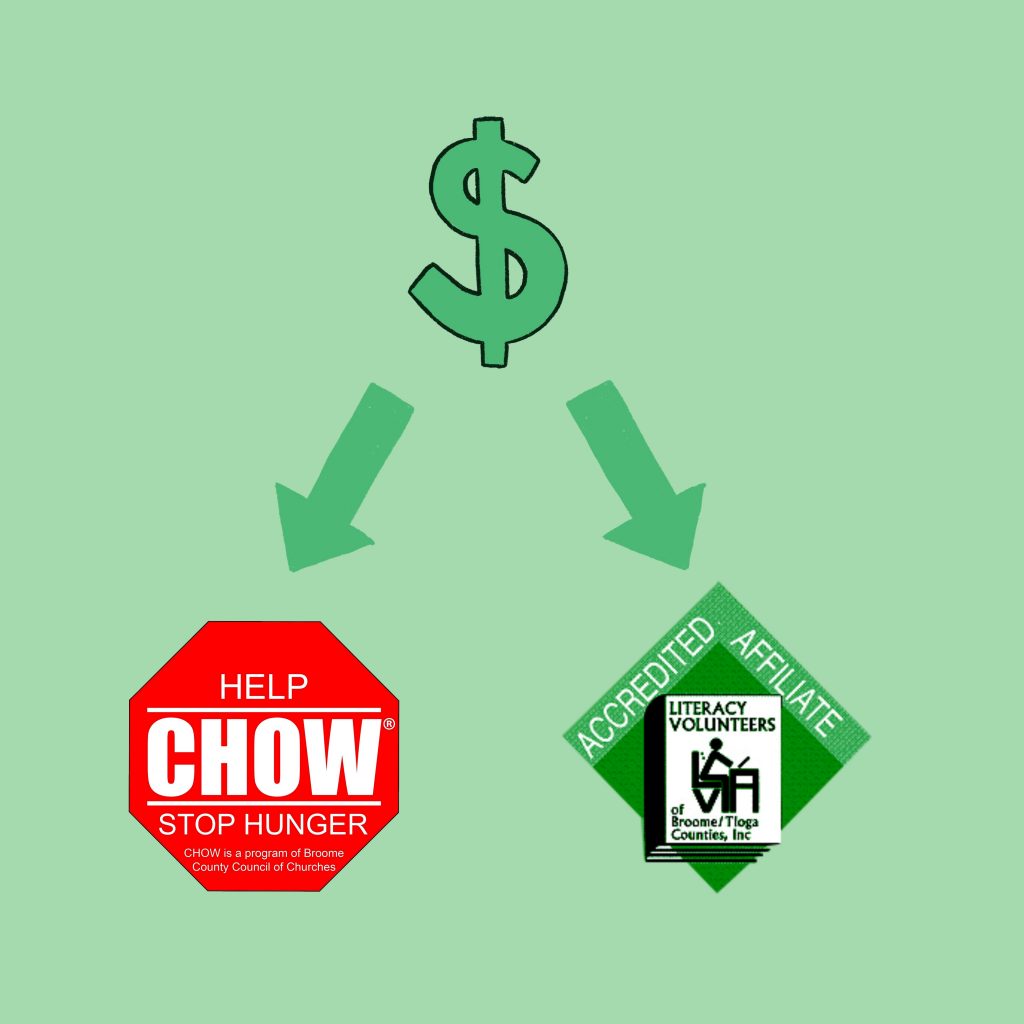Students at Binghamton University will soon practice philanthropy by making donations to local organizations.
The Philanthropy Incubator is a program that allows students to practice philanthropy by raising money and giving it to nonprofit organizations, according to BU’s public administration website. The Incubator was created in 2009, and has raised over $200,000 since. Students participate through the courses Philanthropy & Civil Society (SCHL 280I) and Issues in Nonprofit Administration (PAFF 552).
David Campbell, creator of the Incubator and department chair and professor of public administration in the College of Community and Public Affairs (CCPA), described what he wanted students to take away from the program.
“I started the Philanthropy Incubator because I wanted students to get thinking about the important role giving plays in civic life,” Campbell wrote in an email. “I also thought students would benefit from having the experience of giving, of being real donors, who would be taken seriously by local nonprofit organizations, but also had the responsibility to use the funds they had to give away effectively.”
Donations to organizations are made in the form of grants, as undergraduate students receive $10,000 to give to local and national organizations, while graduate students raise their own money.
According to Lauren Dula, a faculty member overseeing the Incubator and an assistant professor of public administration at CCPA, the grant-making process begins by putting out a call on mailing lists to organizations including United Way and the Center for Civic Engagement (CCE). Once applications are received, students evaluate applicants and select five finalists who each receive $500 for being selected.
“At the graduate level, students must write a formal grant application on their organization’s behalf, perform interviews and site-visits and create a 20-minute presentation to share the information they learned with the full class,” Dula wrote in an email. “The following week, all students should have read through all the evaluation materials and presentations, and we have a day of debate and voting to choose the ultimate recipient of the grant. The students then work to help fundraise and advertise for our event and ticket sales and fundraising proceeds are donated to the selected organization.”
One way graduate students raise their grant money is through ticket revenue from an annual event, known as Party with a Purpose. Lauren Kidd, a co-chair for this year’s event committee and a second-year graduate student pursuing a Masters of Public Administration (MPA), described her experience with the grant-making process and the challenge of deciding whether to fund capital improvement or the organization itself.
“We talked a lot in PAFF 552 about how many requests for capital improvement are denied, so it gave me new perspective as someone who was able to potentially fund one of these requests,” Kidd said. “The organization I was working with last year was Rise and my team was able to successfully argue to the class that capital improvements were necessary for Rise to continue their programming.”
Kidd announced that this year’s Party with a Purpose will be held on Saturday, April 22 at the Broome County Farmers Market. Tickets will go on sale at the beginning of March.
Last year’s undergraduate class chose to donate their grant to two organizations — the Community Hunger Outreach Warehouse (CHOW) and the Literacy Volunteers of Broome County. Sophia Myshchuk, a participant in the program and a sophomore majoring in biology, discussed why her class chose the two organizations as grant recipients.
“CHOW is an efficient organization, as they turn every $1 into five meals, resulting in 50,000 meals with $10,000,” Myshchuk said. “Not only do they help the food insecurities in Broome County, but they also offer other services like job training programs. The other organization, Literacy Volunteers, was chosen because of the urgency of illiteracy rates in the county. One out of every five residents face some literacy issue that negatively impacts their lives. They offer a variety of classes that help with basic literacy and also help those learning English as a second language.”
Arena Rahman, a participant in the Incubator and a sophomore majoring in biomedical engineering, shared what she learned through the program.
“It is just refreshing to talk with my classmates about important issues that are extended beyond our University campus and how we can help,” Rahman said. “My main takeaway after participating in this program is that philanthropy comes in many different forms, not just large donations. We are all philanthropists in a way when we put time and effort into aiding our friends, family and/or the local community.”



